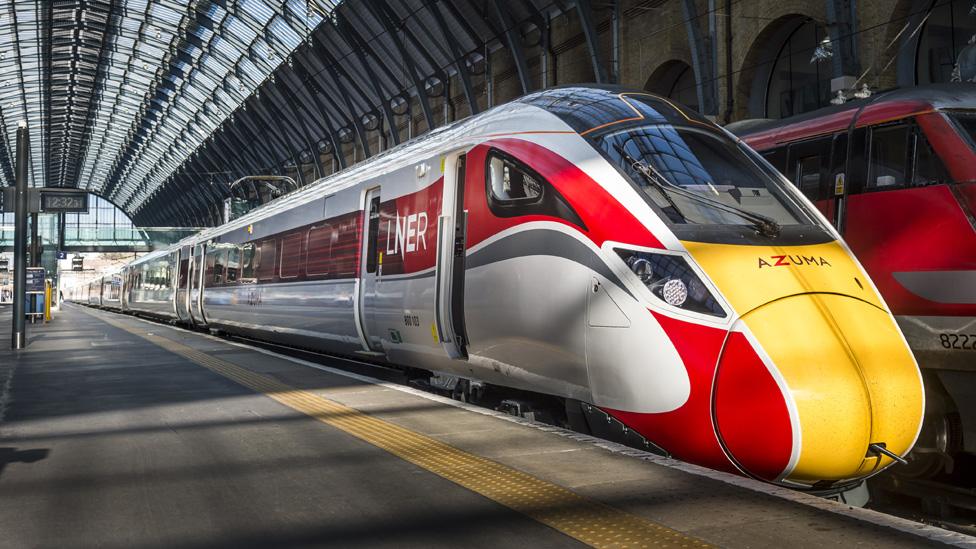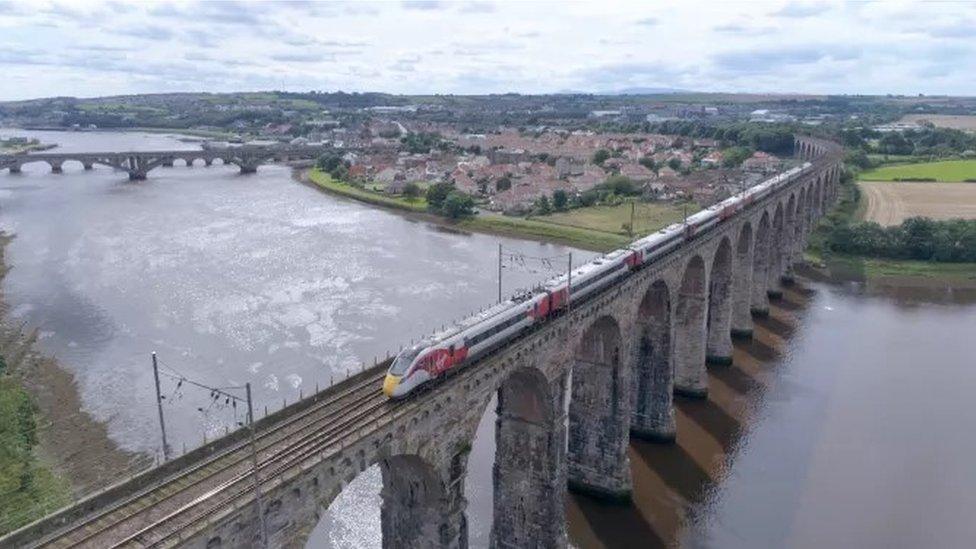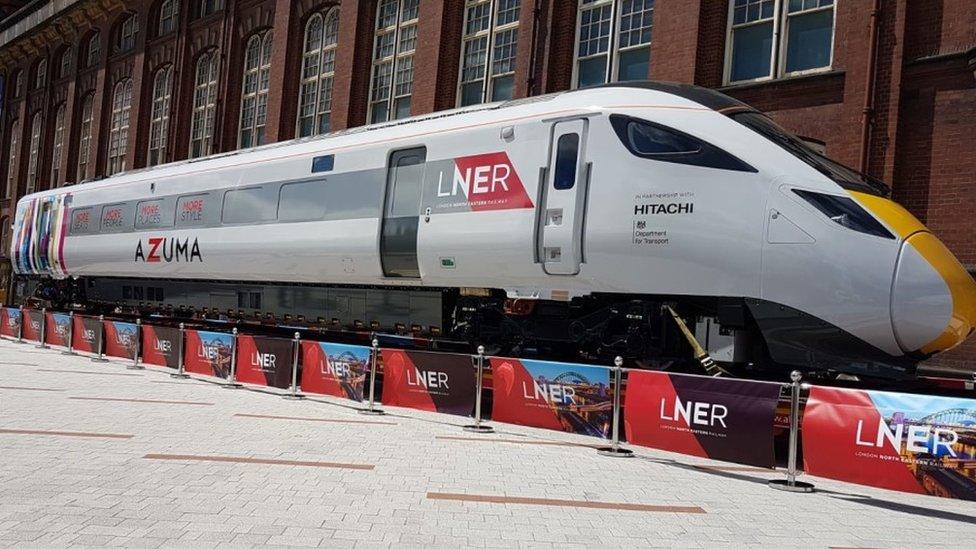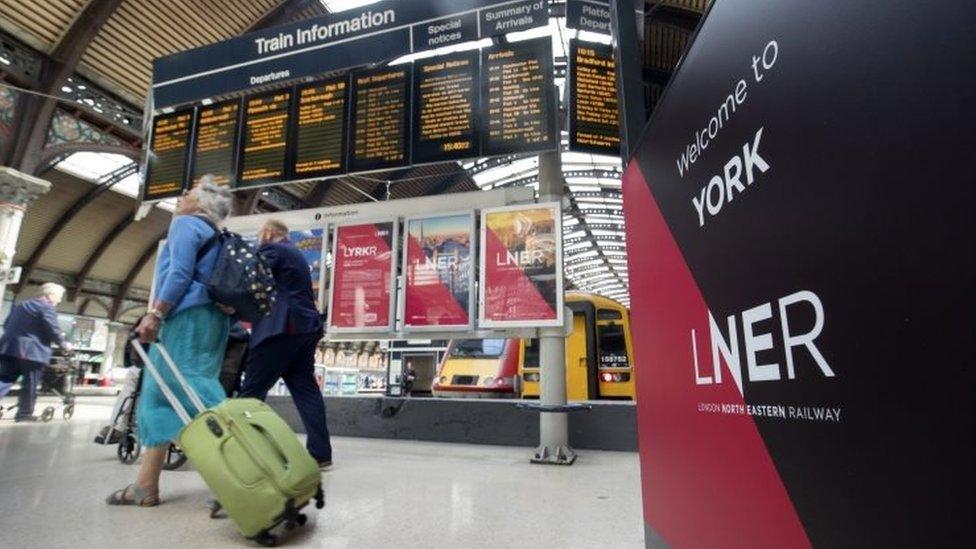Delayed East Coast Main Line Azuma trains to run in May
- Published

The new Azuma trains will be introduced in May
New trains will begin operating on the East Coast Main Line five months later than planned.
Rail operator LNER said the Azuma trains would start operating between London and Hull and Leeds in May.
Plans to introduce the trains in December were abandoned after the electric-diesel locomotives were found to interfere with trackside signalling equipment.
Work is continuing to fix the problems on the line north of York.
Test runs found the trains caused electromagnetic interference to older signals and points when running on electric power.
This meant they could only run on diesel travel much slower than their promised top service speed of 125mph (200 kph)
LNER said there were "still some compatibility problems north of York" and the company hoped to introduce services to the capital from York over summer and from "further up the line at later date".

Tests revealed problems with the trains and trackside signalling equipment
The delay last year attracted criticism, with former Labour transport minister Lord Adonis accusing the government of wasting public money.
He said he ordered the new trains 10 years ago.
"They had 10 years to get these signalling issues right," he said.
"They'll be much more expensive to operate, they'll be slower, they'll have less capacity and hundreds of millions of pounds of public money has been wasted again."
Transport Secretary Chris Grayling described the delay as "teething problems".
"The North needs and deserves better railways. It's getting new trains, it's getting investment, it doesn't happen overnight," he said.
The new trains, modelled on the Japanese bullet train, are being assembled at Hitachi's plant in Newton Aycliffe in County Durham.
They will cut journey times by accelerating faster than existing rolling stock.
Publically-owned LNER hopes to have 65 of the trains in service by 2020.
- Published10 September 2018

- Published24 June 2018
